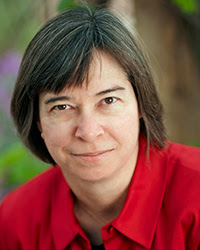Mary LaFrance

How does your research and scholarship influence your teaching and service and vice versa?
Researching the very subjects that I teach enables me to give my students updates and enhancements that are not in their casebooks, and gives me ideas for writing assignments and exam essays. Conversely, my teaching gives me ideas for research. No matter how many times I’ve taught a case, I always re-read it before I teach it. Sometimes I discover nuances I hadn’t seen before, which can lead to new research. And sometimes a student will ask a great question, which can inspire a research project or alert me to a topic that I want to address more fully in the next edition of one of my books. When I work with law school applicants, engineering students, and UNLV undergraduates in the McNair Scholars program, I draw from my own research as well as the experiences of Boyd students and alumni to convey the value of understanding intellectual property.
When you are working on an article or a book, what's your favorite part of the process? What do you do during the process that others might find odd?
For me, writing has two stages – flinging and sculpting. First, I fling down everything I want to say, in no particular order. Sometimes I start in the middle. Then I expand whatever needs expanding, again in no particular order. During this stage I continue my research, often finding new sources and spotting new issues and arguments. So now I have this mass of material. The next stage is sculpting. Somewhere in Michelangelo’s block of marble there was a David. I’m looking for my David. The sculpting is my favorite part, because the article actually starts to take shape and look like something a person would want to read. People might find it odd that I don’t outline. Like most people, I was taught to do that, but it’s no longer part of my process. Technology has changed the way I write. When I was a student, I had to type my papers by hand. It’s hard to do much editing that way, so I had to organize everything carefully from the start. Now I can move things around as much as I want to until I’m really happy with the result.
What students should read outside the required textbooks...
I suggest keeping up with current events in intellectual property law. That way, students can be sure that their outside reading reflects the current state of the law. Because intellectual property law changes constantly, articles and study guides published even a year ago may not be fully up to date on certain topics. And it’s fun to read about ongoing litigation or the debates over pending legislation, because it puts the abstract legal issues into a more concrete context. But it’s also important to read skeptically. The media often misreport intellectual property disputes, because the writers don’t understand the difference between copyrights, patents, and trademarks. And sometimes the source has a specific agenda or point of view, so the discussion could be biased. That’s why it’s important to read multiple sources addressing the same controversy.